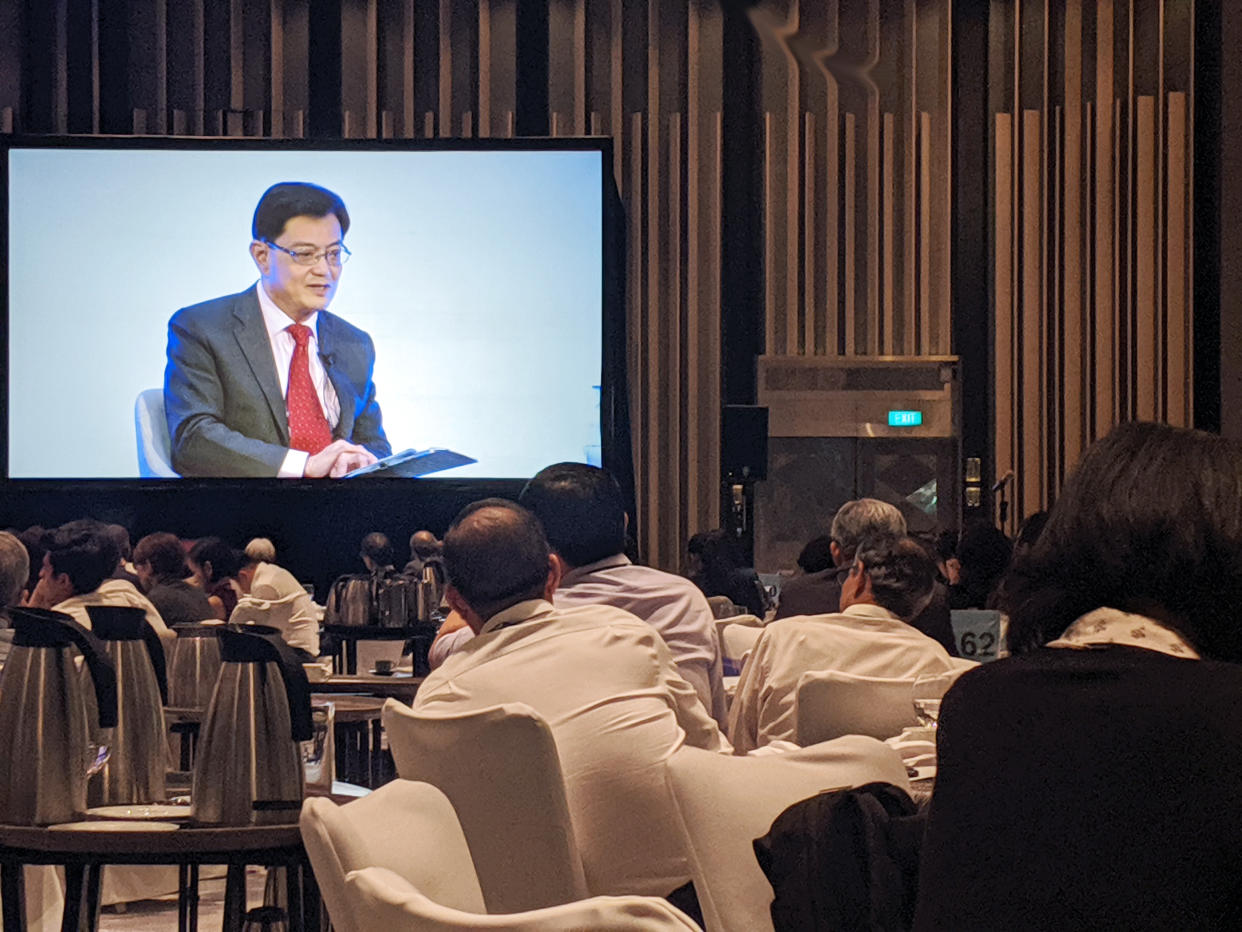DPM Heng stresses to SDP chairman that civil servants in electoral boundaries committee are independent

SINGAPORE — Deputy Prime Minister and Minister for Finance Heng Swee Keat on Monday (30 September) stressed the independence and efficiency of the Electoral Boundaries Review Committee (EBRC) in response to a question posed by a leading opposition party member about its setup.
Heng was responding to Singapore Democratic Party (SDP) chairman Dr Paul Tambyah, professor of medicine at the National University of Singapore's Yong Loo Lin School of Medicine, during a dialogue session concluding the first day of the two-day Singapore Bicentennial Conference at Fairmont Singapore.
Dr Tambyah noted that the event was to commemorate Singapore’s transition from colonialism to self-determination and democracy.
Given the occasion, he asked whether there was “a good reason” that the country does not have an EBRC “independent of the Prime Minister's Office”, even if the electoral boundaries are currently decided by “independent civil servants”.
Chaired by Lee’s principal secretary Tan Kee Yong, the current EBRC consists of four other senior civil servants: the Housing and Development Board chief executive Cheong Koon Hean, the Singapore Land Authority chief executive Tan Boon Khai, the Department of Statistics chief statistician Wong Wee Kim and the Elections Department head Koh Siong Ling.
Dr Tambyah noted the committee’s composition was “somewhat suboptimal in the development of a full-blown democracy”.
Heng explained that expert views on how best to draw the electoral boundaries are necessary in order to reflect population and demographic changes. Constituencies such as Potong Pasir, Hougang and Aljunied remain in the last election as they are today, he pointed out.
“So I hope that you do not doubt the independence (of the EBRC)...that they are doing what is right,” stressed Heng.
Citing changes in Singapore’s upcoming house estates, Heng said he is glad that there is a “group of civil servants who are independent, who does this work independently, and who can advise us on what is the best configuration and the number of Members of Parliament and so on to represent Singapore”.
The dialogue’s chairperson Chan Heng Chee, who is the ambassador-at-large with the Minister of Foreign Affairs, drew laughter from an audience of over 800 people when she said, “You know, this can go on.”
GE speculation heats up
Heng’s comments come after Prime Minister Lee Hsien Loong convened the EBRC in August, signalling the start of the process to hold Singapore’s next General Election (GE), which must be held by 14 April 2021.
If the timelines of the 2015 GE and prior GEs are anything to go by, Singaporeans might cast their votes within several months.
The EBRC’s last report was submitted to the prime minister on 21 July 2015, two months after the committee was formed. Parliament was then dissolved on 25 August, with the GE held on 11 September.
Several opposition parties have ramped up their pre-election campaigning efforts in recent weeks.
On Saturday, the SDP launched its election manifesto in which the party’s Secretary-General Chee Soon Juan called Singapore’s electoral system “authoritarian and anti-democratic”.
The next day, the Progress Singapore Party (PSP), led by former presidential candidate and ex-People’s Action Party Member of Parliament Tan Cheng Bock, conducted its first islandwide walkabout, during which Dr Tan spoke about the possibility of an opposition coalition.
Heng also answered wide-ranging questions on the legacy of colonialism in Singapore, inequality in the city-state, its role in a changing world amid worsening US-China relations, and adverse climate changes.
The conference, organised by the Institute of Policy Studies and supported by the Singapore Bicentennial Office, commemorates modern Singapore’s 200-year history since the arrival of founder Sir Stamford Raffles in 1819.
More Singapore stories:
Johor Bahru-Singapore RTS Link project suspended till 31 October

